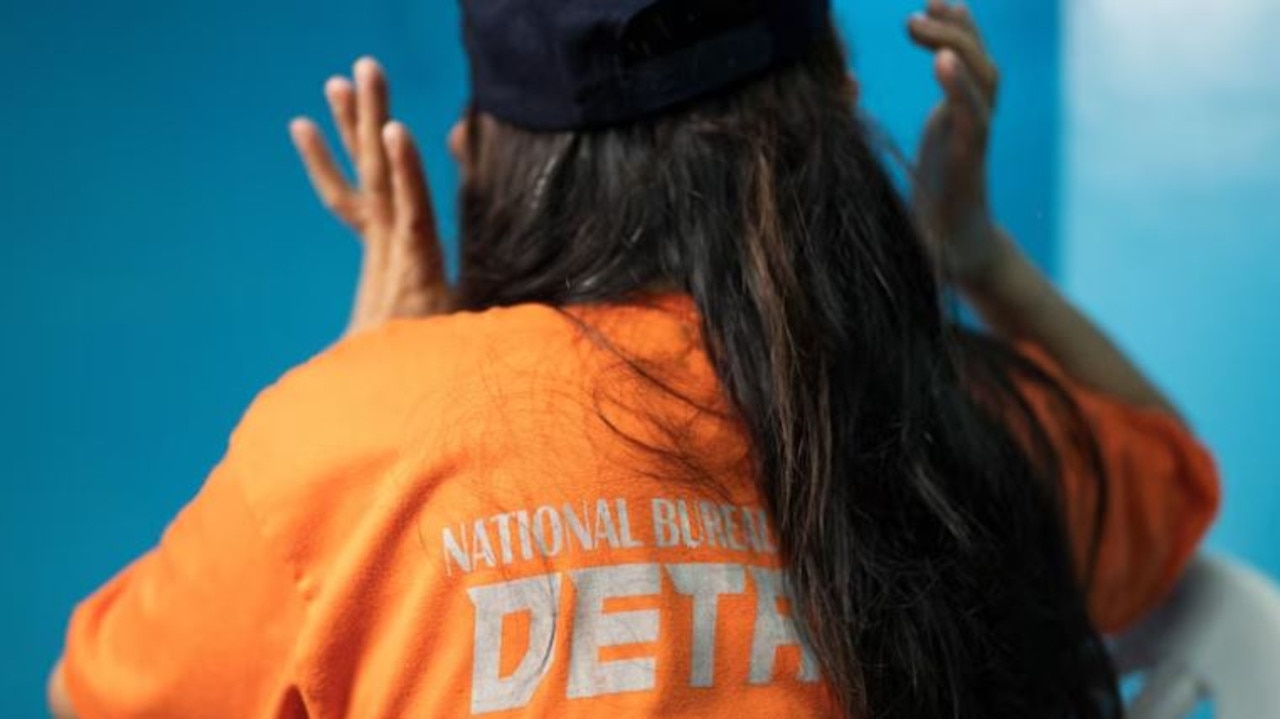WARNING: Distressing
A mum has offered a disturbing insight into a heinous problem that is plaguing a nation of 114 million people — and is supported by a small number of twisted Australians.
Amid the Covid-19 pandemic in 2020, when millions were confined to their homes, reports of online sexual abuse and exploitation of children in the Philippines surged by over 100 per cent. Many of the predators involved are Australians.
The Philippines has become a global hotspot for child sex exploitation, helped by poverty, English fluency and high internet connectivity in the country, experts warn.
In response, the Philippines government declared a “war” against this crime and pledged to increase efforts to arrest offenders and rescue child victims. However, combating this hidden crime wave is a complex and often heart-wrenching task for the authorities.
Investigators say the crime usually plays out with an offender from another country meeting a Filipino “facilitator” online, often through social media or a dating app. For a fee, the facilitator arranges for a child to be sexually abused or exploited live on camera.
With English being widely spoken in the Philippines, predators can easily communicate with the facilitators and even the children. These real-time exchanges can be extremely difficult for the police to detect, and much of the evidence disappears as soon as the video call concludes.
“It’s a really hard crime type, it’s oftentimes very grotesque and violent,” said Caleb Carroll, a former US police detective who works with the non-government organisation International Justice Mission in Manila.
“You’re talking about sexually motivated offenders getting to basically direct in real time the kind of abuse they want to see.”
One mother who is currently sitting in a Philippines prison said she was enticed into selling videos of her children being abused due to her economic situation, according to a recent report by the ABC’s Foreign Correspondent.
She was busted while conversing with what she believed to be an overseas buyer willing to pay for an online sexual performance featuring her children. However, the individual on the other end of the line was actually an undercover police officer.
The moment the police officers noticed that the “show” was about to begin during their video chat, they burst into her home.
“I‘m here because of what I did,” she admitted. “That’s why I’m paying for it.”
According to her, a friend had informed her that she could earn money by selling videos of her children being abused and exploited to foreigners.
She claimed that the decision was “agonising” and not a simple one.
As the primary breadwinner, she was responsible for supporting not just her children but also her extended family. She insisted that she only made her children perform “shows” at the end of each month if she couldn’t afford rent and that she didn’t do it for an extended period of time.
However, one of her children informed the police in their statements that they had done so many “shows” in the last three years that they had lost count.
When asked by the ABC why she did what she did, she offered this answer: “Maybe because we are not the same. That’s why you do not understand. What we’ve been through to stay alive. Maybe when you in my situation, we’re the same. For sure, you are going to understand me.”
The sickening discovery comes after an Australian man was sentenced to 129 years in a Philippines jail as part of a child sexual abuse case involving victims as young as 18 months.
It was the second conviction for Peter Gerard Scully, who is already serving a life sentence for an initial batch of charges involving the rape and trafficking of girls.
“I hope this sends a very strong message to all abusers, all human traffickers, that crime really does not pay,” Merlynn Barola-Uy, a regional prosecutor in the southern city of Cagayan de Oro, told AFP.
A Cagayan de Oro court handed down the sentence on November 3 after Scully and his three co-accused entered into a plea bargaining agreement.
They had been charged with 60 offences, including trafficking, child pornography, child abuse and rape.
Scully’s girlfriend, Lovely Margallo, was sentenced to 126 years in jail. Two others were given sentences of more than nine years.
Victims and their families have accepted the terms of the agreement and consider it a “sweet victory”, according to a statement posted on the regional prosecution office’s Facebook page.
Videos were allegedly sold to customers in Germany, the United States and Brazil.
Most of the people who pay to view these types of sex videos are abroad, with potentially thousands of children being abused, often with their parents’ consent, authorities say.
The United Nations Children’s Fund said in 2021 that the Philippines is one of the top global sources of child sex abuse materials.
— with AFP

